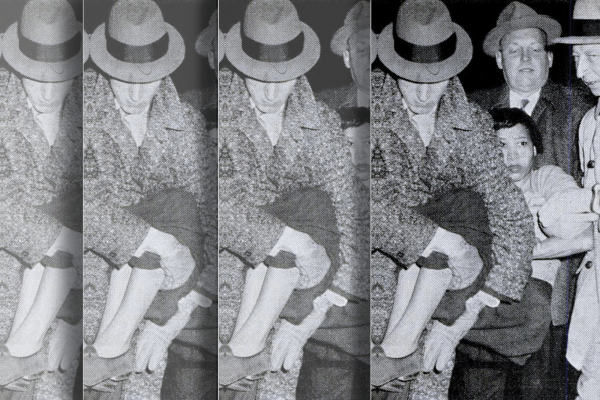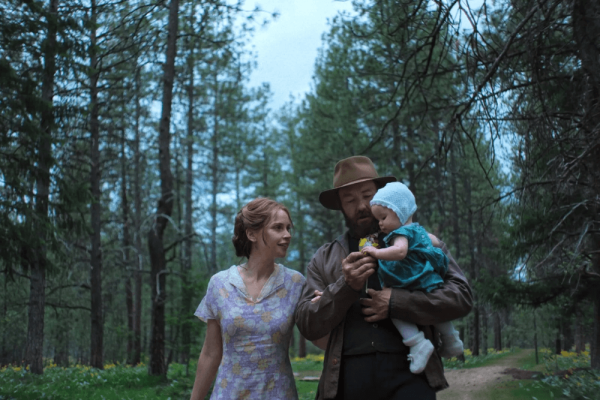PROPHETS USE WORDS to encourage or condemn. The biblical prophet Micah’s command “to act justly and to love mercy and to walk humbly with your God” (6:8), for example, has rung in the ears of many. Language is a powerful tool for social change. However, some prophets don’t use words at all: They use their bodies.
Social prophets today that use their bodies often stand arm-in-arm in front of police barricades or walk miles for justice. But some prophets have used their bodies in another arena: athletics. And many of these prophets are women.
How many know the story of track and field star Eroseanna (“Rose”) Robinson? Some recall in 2016 when football quarterback Colin Kaepernick took a knee during the national anthem in protest of police brutality and in support of the Black Lives Matter movement. Few remember that in 1959, nearly 60 years before Kaepernick’s action, Rose Robinson refused to stand for the U.S. national anthem at the Pan American Games in Chicago because, to her, “the anthem and the flag represented war, injustice, and hypocrisy,” according to historian Amira Rose Davis. By refusing to stand, Robinson used her body to speak for justice.
But Robinson was a full-time activist on and off the field. Throughout the 1950s in Cleveland, she was a leader in the Congress of Racial Equality, an interracial group of students founded by the Fellowship of Reconciliation that paved the way for nonviolent actions in the U.S. civil rights movement.
Robinson led several direct actions at racially segregated skating rinks in Cleveland. Davis acknowledges historian Victoria W. Wolcott for preserving Robinson’s story in Race, Riots, and Roller Coasters: The Struggle over Segregated Recreation in America. In an interview Wolcott told Davis, “Rose Robinson’s athleticism was always central to her political practices. ... When she darted around White skaters while attempting to desegregate Skateland she demonstrated her athletic skill in the face of an aggressive White mob determined to trip her.” Robinson left the Cleveland protests battered and with a broken arm, but she continued her work.
Robinson was, in part, influenced by the post-World War II pacifist organization Peacemakers, a nonviolent grassroots movement that advocated radical action to undermine the war system. Its founding members included A.J. Muste, Bayard Rustin, and Juanita and Wally Nelson. Each member discerned a specific action they would take to step away from the “war-making state.”
War tax resistance became a primary tool for raising awareness about the vast percentage of U.S. taxes that fund weapons production and the military. For several years in the 1950s, Robinson refused to pay federal income taxes as a statement against the U.S. government’s propensity for violence and war. “If I pay income tax, I am participating in that destruction,” she said.
In January 1960, Robinson was arrested and detained in the Cook County jail by Chicago police. She refused to comply with her arrest or recognize the court system. “I will not compromise,” Robinson said, according to The Catholic Worker (March 1960). “I see the military system and the jail system as one thing.” Before the judge, Robinson confirmed that she had not filed income tax returns and then spoke about the dangers of nuclear weapons, tests, and fallout. “We have a duty to contribute to life constructively, and not destructively,” she said.
In February of that year, Robinson was sentenced to “a year and a day” on the charge of criminal contempt for her noncooperation with the court system and the Internal Revenue Service. Upon arrest, Robinson engaged in a hunger strike for more than 100 days until she was finally released.
According to Davis, Robinson likened a hunger strike to “an endurance test, much like athletics ... The discipline needs are the same; a maintenance of form with no wasted motion, detachment from distraction, never leaning toward the finish prematurely.”
In August, after Robinson’s release, she led nonviolence trainings at the Peacemakers gathering in preparation for peaceful direct actions at the nuclear submarine base in Groton, Conn. (The military base there continues to host the largest U.S. nuclear submarine contingent.) Robinson continued her activism until her death in 1976.
In the world of athletics, we now observe many female athletes standing for causes they believe in. Black women in particular follow the legacy of Robinson, who advocated for multiple justice causes. In 2016, days after Philando Castile and Alton Sterling were killed by police, members of WNBA’s Minnesota Lynx wore black shirts that read “Change Starts with US: Justice and Accountability.” The entire WNBA has continued its leadership in the Black Lives Matter movement. Allyson Felix, the most-medaled U.S. athlete in track and field history, and Olympic star Alysia Montaño both took risks to demand labor rights for working mothers by breaking their nondisclosure agreements with sports companies who failed to protect and in fact penalized their sponsored professional athletes who were pregnant. Washington Mystics guard Natasha Cloud has used the power of her platform to advocate for gun safety, especially for children. Most recently, Cloud voiced her support for justice for Palestinians — a move that may cost her sponsorships. Black female athletes are embodied and powerful prophets.
Before Martin Luther King Jr.’s 1967 declaration that the U.S. military is “the greatest purveyor of violence in the world today,” there was Rose Robinson. Before track stars Tommie Smith and John Carlos raised their fists in the 1968 Olympics in support of the Black civil rights movement, Robinson used her body and role as an athlete to be a prophet for justice.
In our technological and social media-centric world, embodied prophecy is not the norm. It’s easier to make statements than to take action. Instead of fickle phrases, how can we use our flesh for freedom?

Got something to say about what you're reading? We value your feedback!







